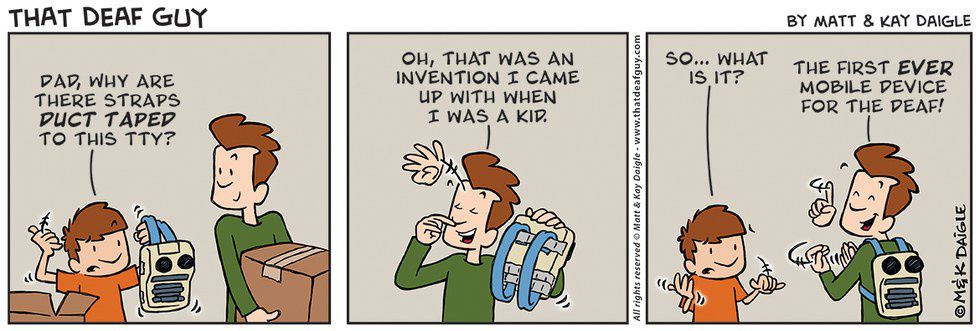Imagine you are sitting at a table with a group of your friends at lunch. You are all gathered around after long classes and tests. This would be an ideal time to share with your friends the stresses of that day or how you tripped on the sidewalk again -- for the fifth time this week. Instead, there you are, a group of seven of your friends but no one is looking at each other or talking to each other. Occasionally you will hear a chuckle from across the table and then they will lean over to show the person next to them what is on their phone. This is a specific characteristic of a culture -- where you can hear and courtesy is deteriorating.
Like most people in the world, I was born able to hear. This small aspect of my anatomy means that I am involved in a specific culture. I will forever be a part of the hearing culture and fall back on the tendencies and nuances of my first culture. However, I am slowly moving towards Deaf Culture due to my major in my university. In Deaf Culture, eye contact is essential because without looking at each other you will have no clue what is going on in the conversation.

This is one of the many characteristics of deaf culture that I have integrated into my own life. My friends and family become uncomfortable and concerned that I "just keep staring at them." However, I am just being respectful to them and showing my interest in the conversation. It is sad how me showing respect to the person I'm talking to makes them uncomfortable. Looking at my phone an entire conversation has become the norm which takes away from personable conversation.
Now, put down your phone, and go have a real conversation, you'll be surprised how many people notice.






















